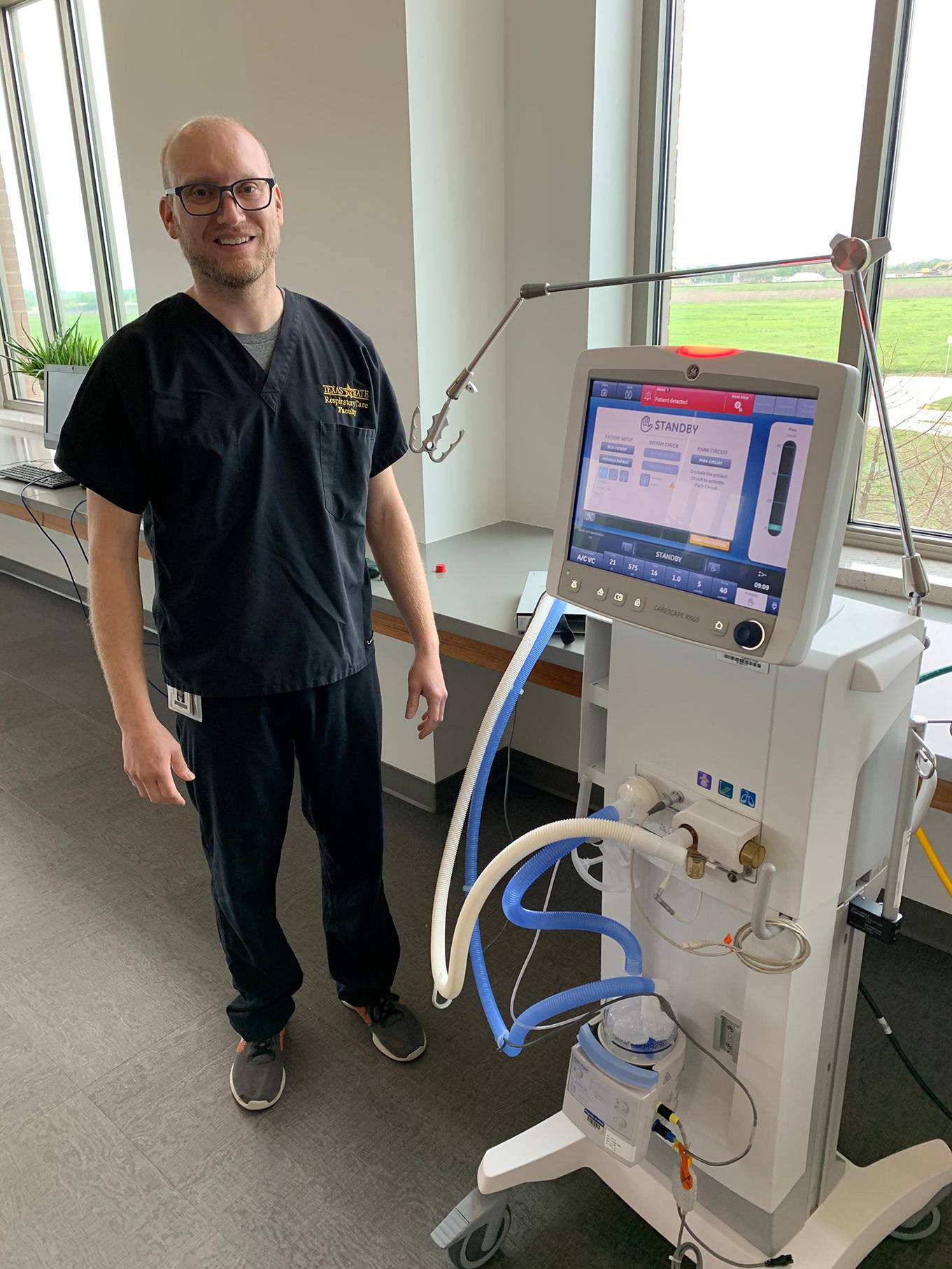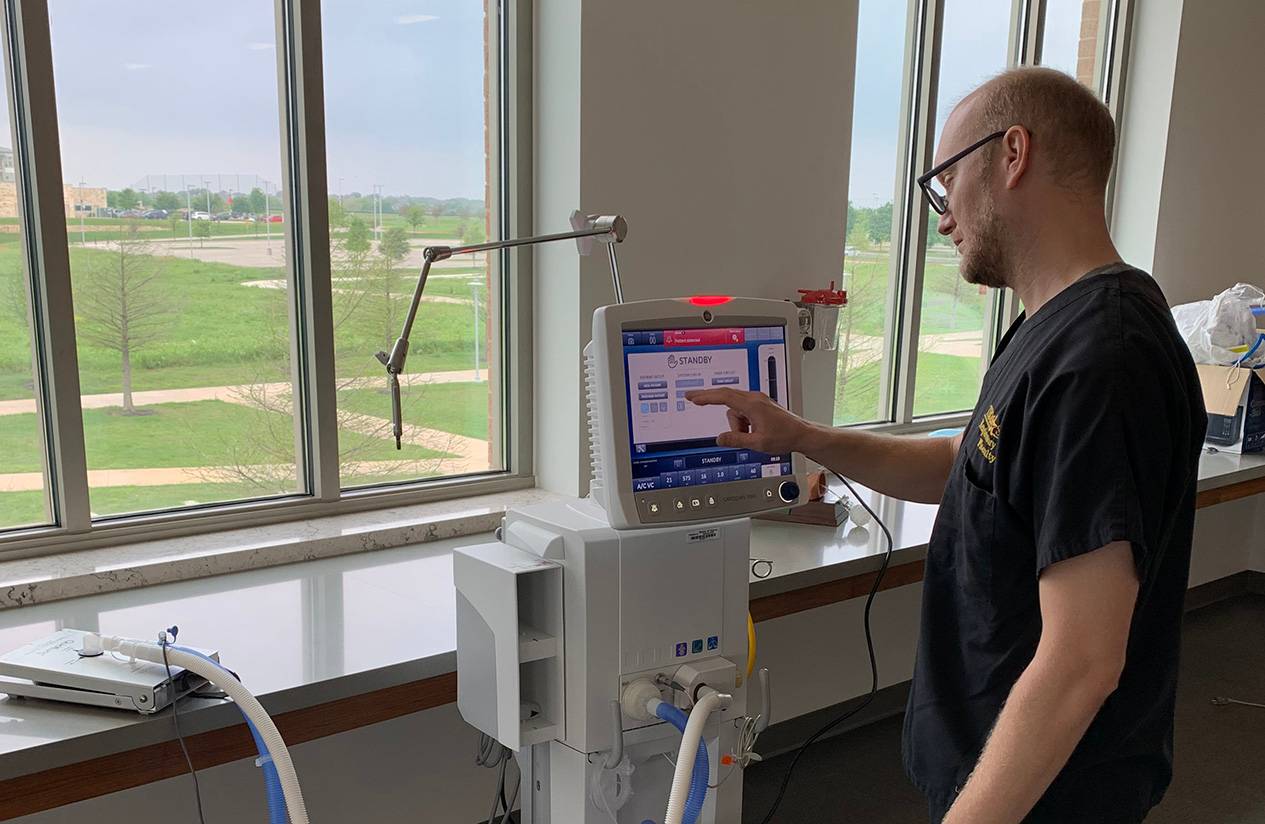Texas State loans ventilators to medical centers to combat COVID-19 pandemic
Jayme Blaschke | March 26, 2020

Texas State University is loaning area hospitals critical ventilators to help combat the COVID-19 pandemic.
Thus far, Ascension Seton Williamson in Round Rock has received four ventilators and Dell Seton Medical Center in Austin is interested in two. St. David’s HealthCare has also discussed the possibility of acquiring units. Update, April 1: Texas State University has loaned seven ventilators to St. David’s North Austin Medical Center to help treat the increase of patients stricken by the COVID-19 pandemic in Central Texas.
The Department of Respiratory Care, part of the College of Health Professions at Texas State’s Round Rock Campus, uses 14 ventilators used to train respiratory therapists. Since Texas State has shifted to remote delivery of coursework through the end of the spring semester due to the pandemic, respiratory care faculty realized the idle ventilators could serve the local community.
“I talked to the faculty, and we decided if there was a need we could help with, we were open to that. The ventilators are a loan, but we won’t need them for the students until well into the summer session,” explained Gregg Marshall, chair of the Department of Respiratory Care. “Professor Nick Henry is working on getting them ready. We’re emptying everything out of the lab, trying to get the ventilators out there where they can make a difference.”
Ventilators are crucial for treating severe cases of COVID-19. Afflicted patients can suffer complications including respiratory failure, and the ventilators assist them in breathing. A single unit can cost between $30,000-$40,000, limiting the number hospitals have available. In parts of the country where the pandemic is widespread, such as New York and Washington State, this has led to critical shortages.
“In the media they’re talking about Ford, GM, Tesla and 3M ramping up for production, but it takes a while to build these ventilators,” Marshall said. “They’ve got to retrofit their factories. These are very complex pieces of equipment.”
Compounding the problem is that ventilators are complicated to operate, and the country is facing a shortage of qualified respiratory therapists. Only respiratory therapists are licensed to make ventilator adjustments for patients, so increasing the number of available ventilators does little good if there are not enough respiratory therapists to go around.
“Last week, Governor Abbott relaxed the Nurse Practice Act to allow senior nursing students to go uncredentialed—before they take their board exams—into the workforce to help, because of the manpower shortage,” Marshall said. “What it’s allowing them to do is enter the workforce early.
“We have been reaching out to the governor asking for the same for our respiratory therapists. In May, we will have 800 respiratory therapists graduating from all the different programs in Texas,” he said. “A rule change like this would allow them to immediately go to the workplace and be part of the workforce. It would be a huge, quick entrance of specialists into the medical system, which is what we need right now to fight the coronavirus. We’re very, very behind.”

Share this article
For more information, contact University Communications:Jayme Blaschke, 512-245-2555 Sandy Pantlik, 512-245-2922 |